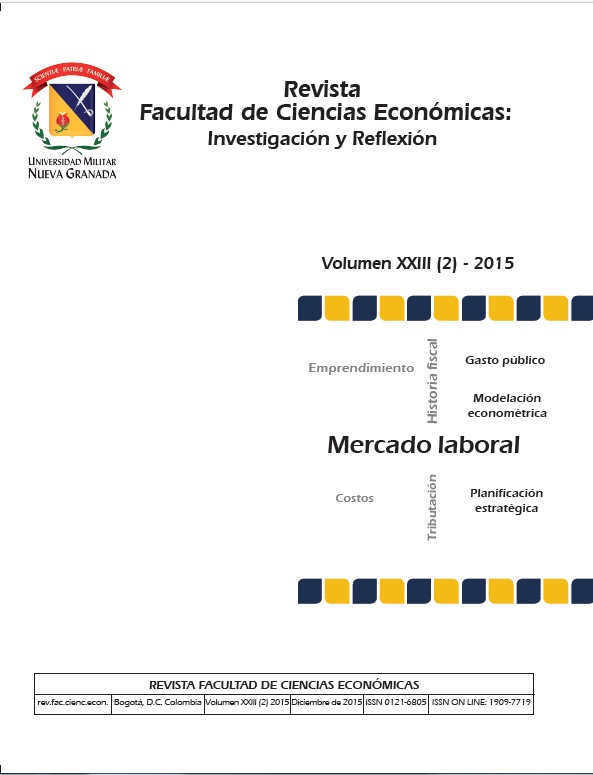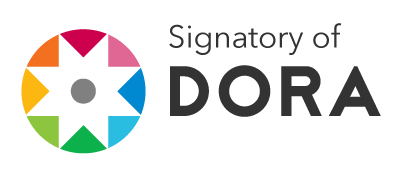Causes of job satisfaction in a marketing organization wholesale
Abstract
This study aims to determine the factors that influence job satisfaction in a wholesale marketer, allowing to establish strategies and actions to achieve a process of continuous improvement of the organization. The methodology used techniques such as: scales, surveys, interviews and direct observation, all interrelated and proceeding to the triangulation of results. It was validated by experts the designed instruments. The statistical processing was done using the SPSS statistical software. The results of the research aspects that inhibited job satisfaction among employees as well as the predominant set of dimensions and indicators that identify the major existent inadequacies were detected.Downloads
References
Álvarez, L. (2005). La satisfacción laboral su medición y evaluación; una experiencia cubana. [Consulta: febrero, 2012]. Disponible en: http://www.gestiopolis.com/Canales4/rrhh/satislaboral.htm,
Brayfield, A., &. Rothe, H. (1951) Journal of Appl. Pschology. Vol. 35, p. 307-11.En Abraham Kormak, (1978) "Psicología de la industria y de las organizaciones": Marova.
Cuesta, A. (1990). Organización del trabajo y psicología social. La Habana: Editorial Ciencias Sociales
Davis, K, & Newstrom, J. (1999). Comportamiento Humano en el trabajo: New York: Ed. McGraw-Hill.
Hackman, R. & Oldham, G. (1980). Work redesign, USA: Ed. Addisson-Wesley
Hackman, R. & Lawler III, E. (1971). “Employee reactions to job characteristics”. En: Journal of Psichology Monograph.
Hernández, R. et al. (2006). Metodología de la investigación 1. y 2 . México: Mc Graw – Hill.
Hoppock, R. (1935). Job Satisfaction. New York: Harper & Row.
Herzberg, F., Mauser, B. & Synderman, N. (1959). The motivation to work. Nueva York: Ed Wiles.
Larrainzar, M., Miñarro, J., Molinos, F. & Verdú, M. (2001). “La satisfacción laboral en el hospital de Sant Cugat de Asepeyo”. En: Capital humano, 143, p. 46-50.
Locke, E. (1976). The nature and causes of job satisfaction. Handbook of industry and organizational psychology. Chicago: Ed. Rand McNally College
López, V. (1994). Las dimensiones esenciales de la motivación. En: Revista UPIICSA Tecnología, ciencia y cultura, Año II, I(3). Nueva época enero – abril. México
Maslow A. (1954). Motivation and Personality. New York: Harper & Row
Mayo, E., (1933). The human problems of and industrial civilization, New York: Macmillan
McGregor, D. (1960). The Human Side of Enterprise. Nueva York: McGraw-Hill.
Morse, N. (1953). Satisfaction in the white collar job. Michigan: University of Michigan
Munsterberg, H. (1913). Psichology and industrial efficiency. En: Anastasi, A. (1979) Field of applied psychology 2ª ed Nueva York: Mc Graw-Hill
Padua, J. (1979). Técnicas de investigación aplicadas a las ciencias sociales. México, D. E: El Colegio de México/Fondo de Cultura Económica.
Peiró, J. (1991). Psicología de la Organización 2–1 y 2–2. Unidad didáctica IV. Universidad de Valencia,
Porter, L. & Lawler, S. (1988). Teorías de Motivación. México: Edit. Prentice
Robbins, S. (2000). “Comportamento Organizacional. Teoría y Práctica”. Séptima. Méjico: Edición Prentice-Hall Hispanoamericana S.A.
Robbins, S. (2006). Comportamiento organizacional., México: Editorial Prentice Hall Hispanoamericana
Robbins, S. & Coulter, M. (1996). Administración. México: Prentice-Hall Hispanoamericana, S.A.
Spector, P. (2002). Psicología Industrial y Organizacional: Investigación y Práctica. México: Manual Moderno.
Strauss, G. & Sayles, L. (1992). Personal. México: EditorialPrentice Hall
Smith, P., Kendall, L. & Hulin, C. (1969). The Measurement of Satisfaction in Work and Retirement: A strategy for the study of attitudes. Chicago: Rand McNally.
Taylor, F. (1911). The principles of Scientific Management. Nueva York: Ed. Harper y Bros,
Tubán, R. (2000). Medición del clima laboral en las organizaciones. Disponible en: http://www.tablero-decomando.com. [Consulta: abril, 2012].
Vroom, V. H. (1964). Work and Motivation, New York: Wiley
Zayas, P. (1996). ¿Cómo seleccionar al personal de la empresa?, Ciudad Habana Ed. Academia.
Zayas, P. (2011). El Rombo Investigativo de las Ciencias Sociales: un método lógico-práctico en la concepción, proyección y ejecución de investigaciones. Disponible en: http://eumed.net/libros/2010e/822/index.htm
Zayas, P., Almaguer, M. & Álvarez L. (2014). Instrumentos para el estudio y la evaluación de la satisfacción laboral en una organización, Revista Caribeña de las Ciencias Sociales, EUMED-NET. Disponible en: http://xn--caribea-9za.eumed.net/satisfacción-laboral/











